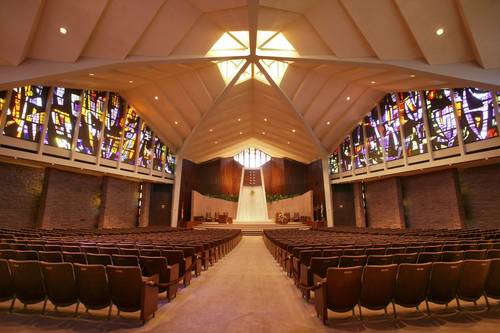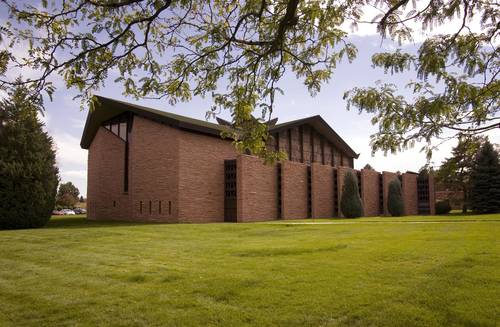A Welcoming Jewish Community
 Temple Emanuel is the largest and oldest synagogue in the Rocky Mountain region, with approximately 2000 member households. We are a Reform congregation in the mainstream of liberal Judaism.
Temple Emanuel is the largest and oldest synagogue in the Rocky Mountain region, with approximately 2000 member households. We are a Reform congregation in the mainstream of liberal Judaism.
We strive to be a welcoming Jewish community. Whether you’re single or partnered; gay or straight; Jewishly involved or seeking Jewish connection; from an interfaith or a Jewish home, you will find a comfortable place in our congregation.
Our clergy and teachers help congregants exercise the responsibility and freedom to pursue the Jewish way of life most comfortable for them. Each member is encouraged to create a personally fulfilling expression of his or her Judaism on a life-long spiritual venture of discovery and reward.
We believe that Jewish consciousness includes support for the larger Jewish community and for Israel. We regularly participate in activities to help strengthen both.
Celebrating 150 Years!
In honor of our 150th Anniversary, dedicated congregants curated and created special content about our history:
Stream the expertly produced documentary "Heritage, Harmony, Home" about the history of Temple Emanuel and its place in the Denver Jewish community and Colorado more broadly.
Purchase the beautiful and thoughtfully written keepsake coffee table book, "Temple Emanuel: A Celebration of Us!" that catalogues the Temple's history from 1974 to 2024. This book is a companion piece to the original history book about Temple Emanuel, published on our 100th Anniversary, and written by Marjorie Hornbein.
Explore photos from over the years in this 150th Anniversary photo gallery.
The History of Temple Emanuel
 Temple Emanuel is the oldest Jewish congregation in the state of Colorado, founded in 1874. It is the largest Jewish congregation between Kansas City and the West Coast.
Temple Emanuel is the oldest Jewish congregation in the state of Colorado, founded in 1874. It is the largest Jewish congregation between Kansas City and the West Coast.
Temple Emanuel’s early beginnings lie in a burial and prayer society that was organized in 1866. The congregation was officially incorporated by 22 members in 1874, two years before Colorado became a state. Within its first year, membership was almost doubled and on September 28, 1875, its first synagogue was dedicated at what is now the corner of 19th and Curtis streets. Early in 1876, the congregation engaged its first full-time rabbi.
The congregation grew and prospered with the community. It soon outgrew its original home and in 1882 a new synagogue was erected at 24th and Curtis Streets. This building still stands today, though it was gutted by a fire in 1897.
After the fire, rather than rebuild, the congregation decided to move to another location, as many of its members no longer lived nearby. Thus, the location at 16th Avenue and Pearl streets was chosen. In January of 1899, this third home was dedicated. The building was doubled in size in 1924. By 1953, however, the congregation had become cramped again and found it necessary to plan for another move.
The present building, at 51 Grape Street, was completed in two stages. First came the school and social areas in 1957. Then, the sanctuary was dedicated in October 1960. The building was subsequently expanded in 1987.
During our 130-year history, fourteen rabbis have been our spiritual leaders. Rabbi Joseph R. Black became Senior Rabbi in July, 2010.
The Feiner Family Chapel
The Feiner Family Memorial Chapel in Temple Emanuel is dedicated to the preservation of our rich heritage, our legacy, and the historical struggle to preserve Judaism. The chapel is testimony to the faith that endured through the Holocaust: "Ani Maamin - I believe." We believe that we are Am Olam, an eternal people which must never perish.
Many of the furnishings in the chapel were present when the last Jew spoke in a small synagogue in Kolin, Czechoslovakia. The artifacts, furniture, symbols, and the Torah hold the memories of the 480 Jews who lived in Kolin and the over 2000 Jews who were transported through Kolin to Nazi concentration camps. Sixteen of those Jews survived to return to Kolin.
The objects from the small synagogue in Kolin endured the tragedies of the Holocaust in a warehouse. They were stored by the Nazis as museum objects to represent a religion that was not allowed to survive. Judaism did survive; six million of our people did not. In 1989, the Torah in the ark of the Feiner Family Chapel was reunited with ark from which it was taken by the Nazis in 1942. It is Torah MST#287, allocated on permanent loan by the Memorial Scrolls Trust in London in 1988. It is one of 1,564 scrolls that survived the Holocaust.
The religious symbols from Kolin are united with furnishings from the sanctuary from the old Temple Emanuel on Pearl Street and combine to powerfully link generations of Jews. In this way the spirit of ani maamin will continue for our children and our children's children.

